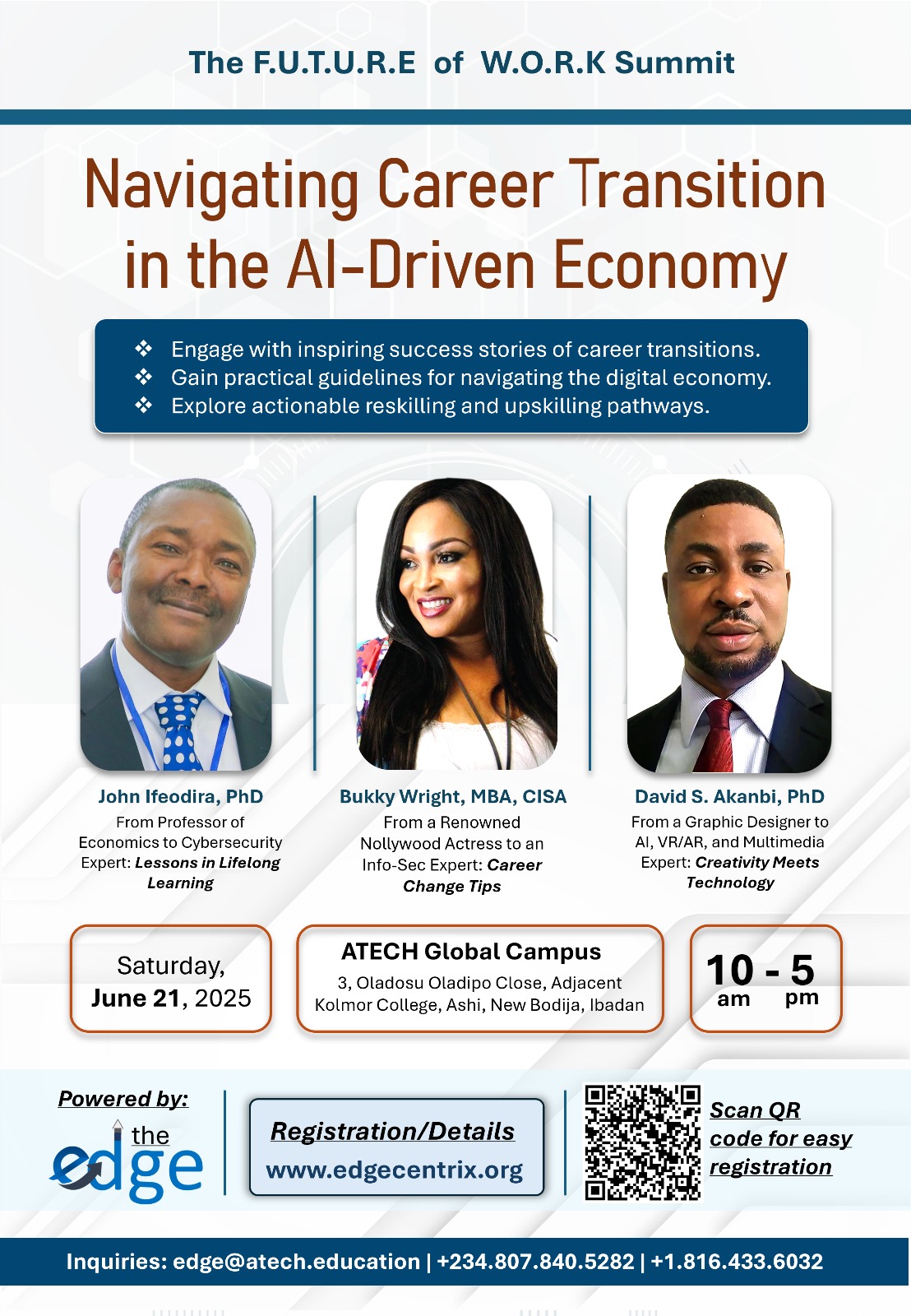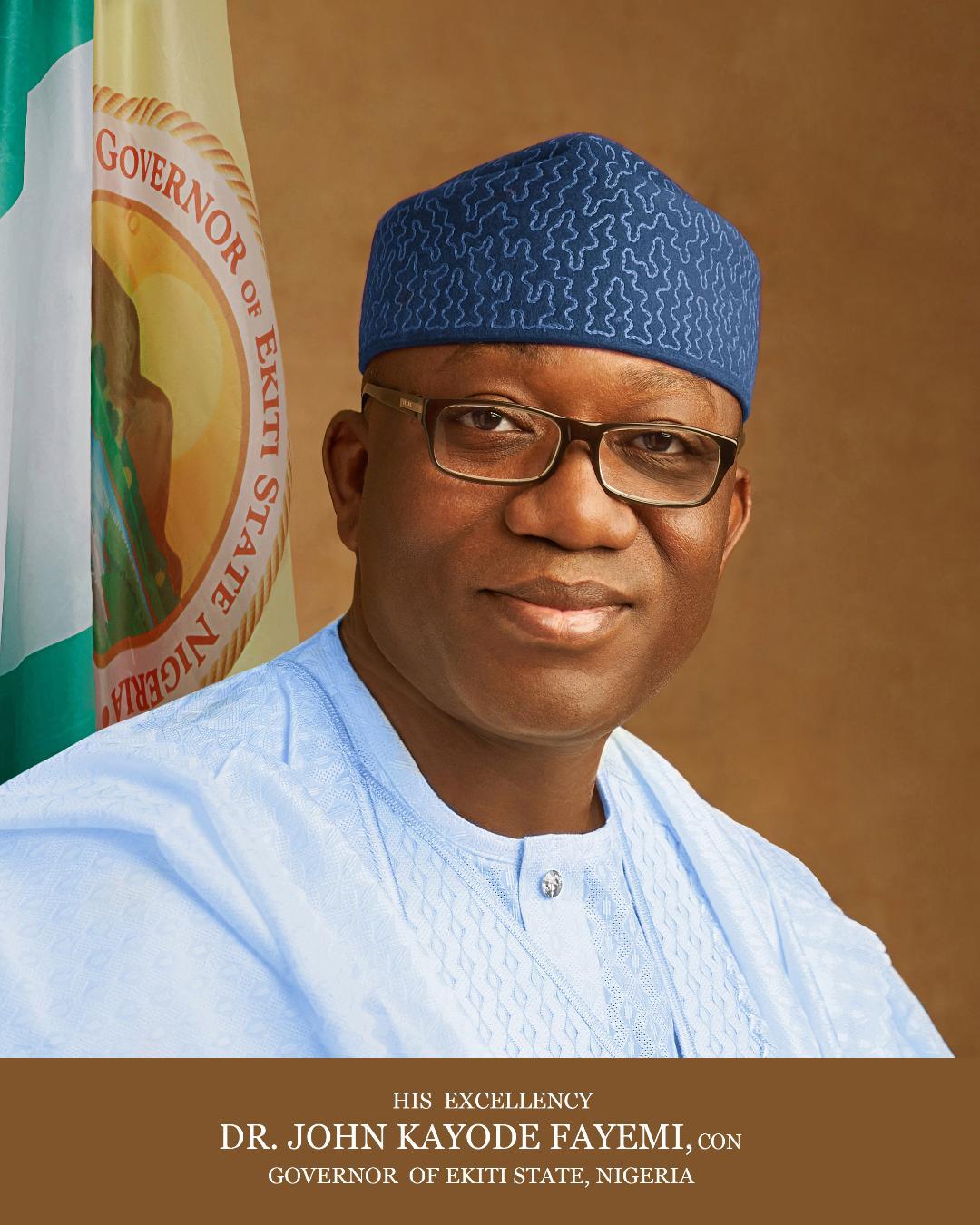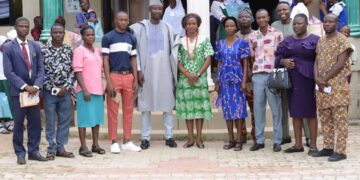Ekiti State Governor, Dr. Kayode Fayemi, has assured Nigerians that the various challenges currently bedeviling the nation are not insurmountable.
Governor Fayemi said the problems are generally symptomatic of the developing nations, adding that most of the challenges the country faces in its developmental journey are part of the necessary developmental hurdles it must cross in order to get to the desired destination.
He however advised Nigerians not to despair, but take useful lessons so that the nation does not continue to make the same mistakes over and over.
Dr. Fayemi stated this on Friday at the University of Medical Sciences, Ondo, Ondo State, while delivering a paper titled “Re-thinking Nigeria For Future Development” to mark the University’s combined 8th Distinguished Guest Lecture and 5th Founder’s Day.
The Governor identified some flaws in the federal structure being run in the country as the main cause of the various challenges facing the nation, adding that there is a general sense of inadequacy and powerlessness among the federating units in the critical areas of socio-economic development.
He stressed that the defective federalist ideals enshrined in the Nigeria’s Constitution had continuously limited the power of the states to pursue individual development programmes at their own pace, stressing that Nigeria must fully address the issue of federalism if the political class was serious about lifting the country out of the current challenging situation.
He described the existence of a unitary policing system in a defined federal structure as an aberration which has handicapped the state governments in the quest to effectively and efficiently tackle the issue of insecurity which has defied all federal tactics in the states.
The governor restated that Nigeria is currently faced with security challenges that include terrorism, banditry, armed robbery, ethno-religious issues and other low level criminality saying that country’s security architecture remained ineffective because it suffers what one might call “structural obesity”.
According to the governor “Our political structure is something to cast a big look into; many commentators have identified the kind of federal structure we run as one of the reasons for our numerous challenges. There is a general sense of inadequacy and powerlessness among the federating units in the critical areas of socio-economic development. For example, many have asked questions as to why the state cannot develop its own rail system and it has to be on the exclusive list, its also argued that the idea of national grid is the recipe for energy crisis that we now have.
“It is just elementary that if all of our energy sources are on the single grid, the grid is bound to suffer constant and consistent collapses and infractions. Why do we have to have a national driver’s license and vehicle licensing system when motor licenses is obviously a municipal responsibility of vehicle inspectorate department of the state ministries of transport.
“Why do we have a unitary policing system in a federal structure? Does it not fly against reasoning that a state would have a state legislature to make its laws, the state judiciary to interpret them, but would not have a state police to enforce the law.
“I have always maintained along with my colleagues in the southwest governors’ forum that if we could trust the state judiciary to discharge justice, which sometimes they stand against those in authority, why can’t we trust same state with the police to bring suspects before the courts?”
Fayemi lamented the high level of poverty ravaging the people of the country due to high incidence of unemployment, citing current World Bank data that put unemployment rate at 2.7 percent of the population. The world bank data also positioned Nigeria as 162nd of 167 nations measured on Human Development Index.
Fayemi, who is Chairman of the Nigeria Governor’ Forum listed the problem of nationhood and slow economic development as the two major problems facing the country, saying Nigeria has remained a deeply divided country along mainly ethnic and religious boundaries.
The governor added that every economic thoughts and interventions introduced to jumpstart the nation’s economy to self reliance and a prosperous one has always met with brick wall by those who believe that it was not the idea of the founding fathers. He posited that the nation’s addiction to imported goods has turned the country to a backward nation industrially and infrastructuraly.
He urged Nigerians to always exercise patience and not to be over-reactive with government in its drive to ensure that there is improvement economically, politically and infrastructurally adding that realizing government policies and programmes take some time.
Speaking further, Dr Fayemi who took a dissecting look at the economic, faulted the attitude of the both the government and the people to economic and development policies.
He said: “It is believed that half of the Nigeria population lives below the poverty line and human development index is at the very low ebb of 0.53 as at 2017 which makes the country 162nd of the 167 nations measured in the world. Current World Bank data suggests that poverty incidence in our country is more endemic in the north with 87 percent living below the poverty line than in the southwest, 16 percent live below poverty line. With the labour force of about 90.5 million and roughly 3.9 million new entrants to the labour force annually, unemployment continues to grow at 2.7percent while Nigeria coming to recent statistics has an unemployment rate of about 24 percent and youth unemployment rate of about 36.5 percent.
“Apart from uneven spread of economic opportunities in our planning, one consistent challenge to our overall development goal has been lack of patience in policy execution. We have a national habit of over-reacting to every new idea as destructive and something to be jettisoned immediately, we easily scandalized and demonized new initiatives that challenged old practices while it is understandable that every policy comes to its own inherent challenges which could be improved upon as time goes on. We tend to focus exclusively, on perceived weaknesses and use this as an object of media hysteria. This regrettably has led to innovation paralysis and built an impossibility syndrome, what some call the Nigeria factor.
“There is a wild deficit of infrastructure and very limited resources to urgently fix them. Our total capital spending in ten years is what we need in a year to make an appreciable impact on the infrastructural development, yet there is no urgent miracle to make it happen immediately.
“Our economy still remains fragile in spite of the tremendous work being done by the federal government because we are still a commodity dependent nation with our intended susceptibility of the unstable international prices. And we have seen that recently, oil price has gone down to $49 yesterday and OPEC has had to cut down the supply to the world market that automatically throws our budget 2020 out of work because that was the budget that was prepared on a benchmark price of $57 per barrel.
On stomach infrastructure, Fayemi said, “The concept of stomach infrastructure was espoused by an obviously barren political demagogue, indeed, the confused intellectual arm of the society even found justification for the ridiculous idea until it became clear to everyone that it was a bit of a nice idiocy. We cannot continue to remain festooned to politics of tokenism, our politics must be defined by grand understanding of contemporary problems and the capacity to see it to the future. We need to draw away from the politics of antagonism based on social attributes of the individual. Our political thoughts should motivate critical debates on economic policies centering round national institutions and anchoring on decent engagements.
On education, the Ekiti State Governor said Nigeria’s education sector has one of the most elaborate bureaucracy in the world with too many agencies, boards and commissions “Our new approach should not be about multiplicity of regulatory agencies and mushrooming of higher institutions of learning across the nation, we need to refocus our education to the one that produces graduate with useful knowledge and skills that fit into the global demands of today and the future.
“For example, a student of education should not just be prepared to be a good teacher, he should be exposed to investment opportunity for self-reliance in education sector including coaching, book publishing, edu-tech software development, library and laboratory development consultancy, counselling and school placement consultancy, among other opportunities inherent in being an educationist.
“So, the new thinking therefore will be to have graduates who have an idea of what they can do with their degree besides seeking employment. Students of medical sciences should not only be an expert in medical sciences and practice, they should be well knowledgeable about the business side, investment opportunities, tech-innovations in medical practice, medical marketing, health journalism, policy advocacy, health economics and other areas of entrepreneurial practice in the field of medicines, he added.
In his remarks, Ondo State governor, Arakunrin Olurotimi Akeredolu (SAN) said he was surprised that Nigerians generally were not interested in the development of the nation adding that we should not permanently refer to ourselves as a developing nation.
He noted that autonomy cannot be granted to the local government because it is not part of the federating arrangement of the federal government.
Earlier, the Vice Chancellor of the University, Prof. Friday Okonofua described the lecture as special because the university was combining two lectures series into one and the fact that it was a valedictory lecture on his honour as he was bowing out as the Vice Chancellor of the university.
The Vice Chancellor said the idea of the lecture series was to provide opportunity for scientists, advocates, researchers, innovators, those in politics, social engineering interprets their vision statement to a wide community stakeholders.
He noted that part of the reasons that public policy interventions have not found substantive footing and followership in this country is the lack of knowledge of stakeholders about what these policies meant for development and sustenance of life.

















